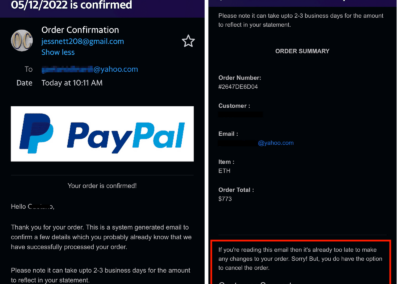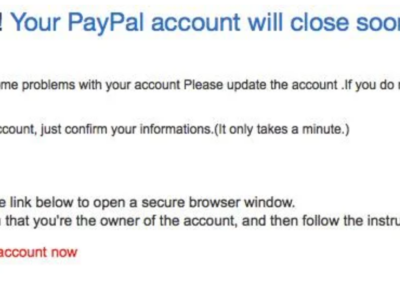Unraveling the PayPal Scam Web
Safeguarding Your Finances Online
In the digital age, where online transactions have become an integral part of our lives, platforms like PayPal provide convenience and efficiency. However, with great convenience comes the risk of cyber scams. PayPal, boasting around 200 million users, has become a lucrative target for cybercriminals looking to exploit unsuspecting individuals. In this blog post, we’ll delve into the insidious realm of PayPal scams, shedding light on how they occur and offering valuable insights on protecting yourself from falling victim to these fraudulent activities.
Understanding the PayPal Scam Landscape
PayPal scams encompass a variety of deceptive tactics, often preying on users’ trust and the platform’s seamless integration with credit cards and bank accounts. One prevalent scam involves phishing emails or messages that mimic official PayPal communications, leading users to counterfeit websites where login credentials and personal information are harvested.
Moreover, cybercriminals may exploit vulnerabilities in PayPal’s security systems, gaining unauthorized access to user accounts and conducting fraudulent transactions. The anonymity and global reach of the internet make it challenging to trace these criminals, making prevention a crucial aspect of online safety.
How PayPal Scams Happen
-
Phishing Attacks: Users receive seemingly legitimate emails or messages prompting them to click on links that redirect to fake PayPal sites, tricking them into entering sensitive information.
- Account Takeovers: Cybercriminals use various methods like weak passwords or data breaches to gain access to PayPal accounts, enabling them to make unauthorized transactions.
-
Fake Buyer/Seller Scams: In online marketplaces, scammers pose as buyers or sellers, tricking users into sending money or goods without delivering the promised service.
Protecting Yourself from PayPal Scams
- Enable Two-Factor Authentication (2FA): Strengthen your account security by enabling 2FA. This adds an extra layer of protection, requiring a second form of verification in addition to your password.
- Verify Emails and Messages: Legitimate PayPal communications will never ask for sensitive information via email or messages. Always verify the sender’s identity before clicking on any links.
- Regularly Monitor Your Account: Keep a close eye on your PayPal transactions and account activity. Report any suspicious transactions immediately to PayPal’s customer support.
- Use Strong Passwords: Create complex passwords and change them regularly. Avoid using easily guessable information, such as birthdays or common words.
- Educate Yourself: Stay informed about common scams and phishing techniques. Awareness is key to recognizing and avoiding potential threats.
- Update Your Software: Ensure that your devices and software are up-to-date with the latest security patches. Regular updates can patch vulnerabilities that scammers may exploit.
while PayPal scams pose a real threat in the online landscape, users armed with knowledge and proactive measures can significantly reduce their risk of falling victim to fraudulent activities. By staying vigilant, adopting secure practices, and leveraging the security features provided by platforms like PayPal, we can navigate the digital realm with confidence and protect our financial well-being.






